24 Notable Quotes By Max Planck
Max Karl Ernst Ludwig Planck, commonly known as Max Planck, was a German theoretical physicist who postulated Planck’s quantum theory which fetched him the Nobel Prize in Physics. He revolutionized the study of Atomic and sub-atomic particles through his quantum theory. The Plank’s constant and the Planck's law of black body radiation are heavily applied in the study of quantum Physics. Along with the Nobel Prize, he bagged various honors namely the Lorentz Medal, Copley Medal, Max Planck Medal and Goethe Prize. Various other equations, formulae and laws such as Fokker–Planck equation, Kelvin–Planck statement of the Second Law of Thermodynamics and Nernst–Planck equation are named after this great physicist. He was one of the only few to derive corollaries from Einstein’s special theory of relativity. He was vocal about subjects such as success, happiness, truth, innovation, creativity, knowledge, wisdom and science. We have curated Planck’s notable quotes from his writings, research papers, observations, interviews etc. Let us go through some of the popular quotes from this Nobel laureate.
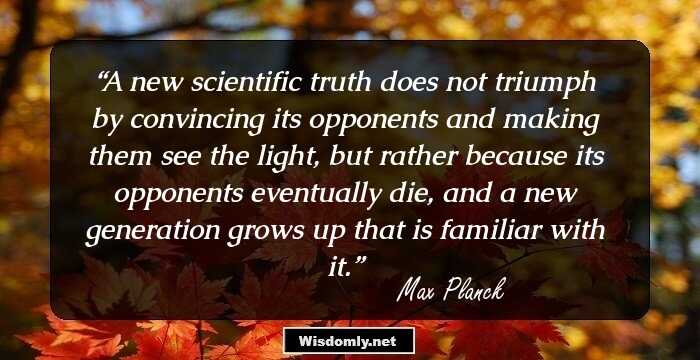
A new scientific truth does not triumph by convincing its opponents and making them see the light, but rather because its opponents eventually die, and a new generation grows up that is familiar with it.
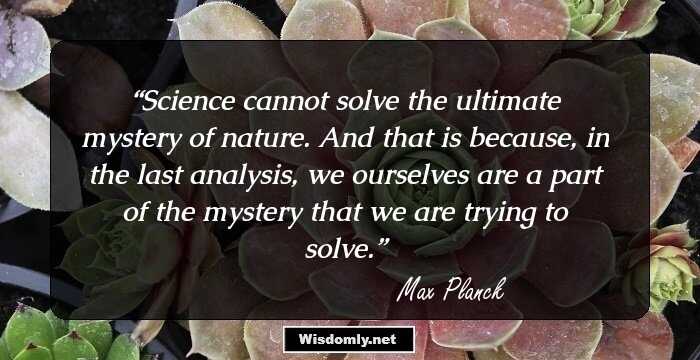
Science cannot solve the ultimate mystery of nature. And that is because, in the last analysis, we ourselves are a part of the mystery that we are trying to solve.

It is not the possession of truth, but the success which attends the seeking after it, that enriches the seeker and brings happiness to him.

Science advances one funeral at a time.

When you change the way you look at things, the things you look at change.
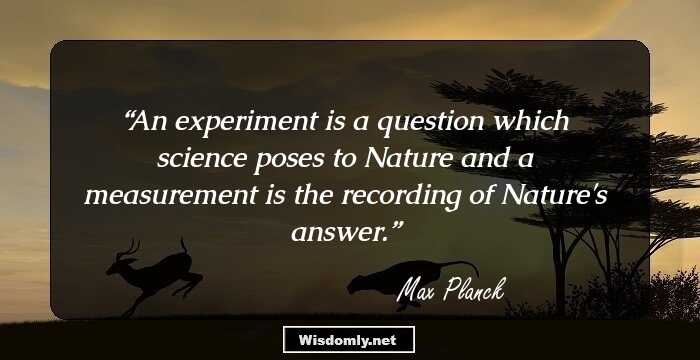
An experiment is a question which science poses to Nature and a measurement is the recording of Nature's answer.
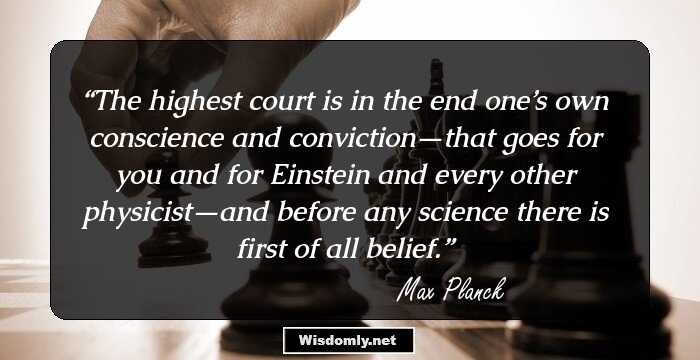
The highest court is in the end one’s own conscience and conviction—that goes for you and for Einstein and every other physicist—and before any science there is first of all belief.
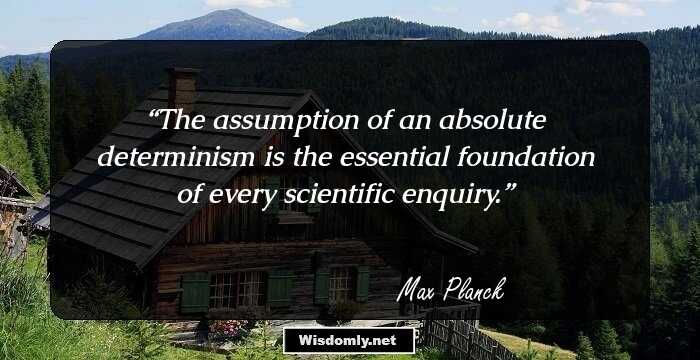
The assumption of an absolute determinism is the essential foundation of every scientific enquiry.
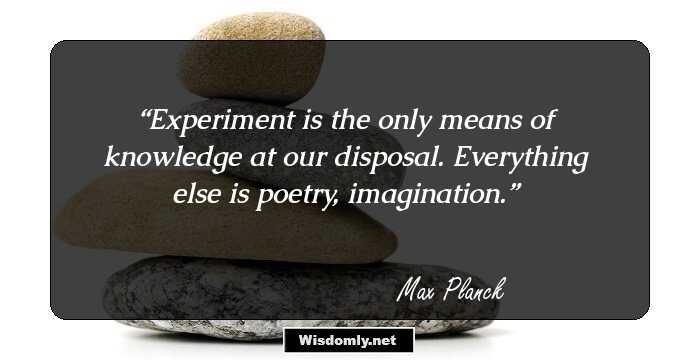
Experiment is the only means of knowledge at our disposal. Everything else is poetry, imagination.
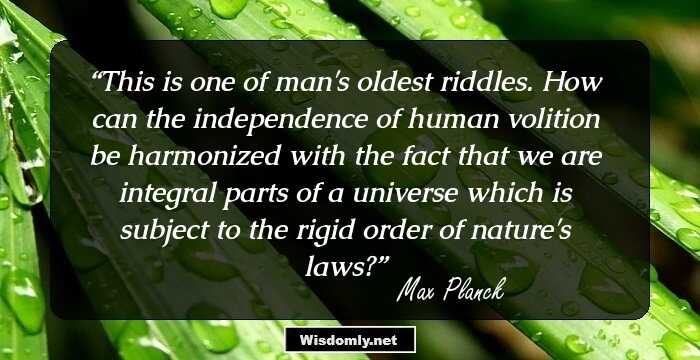
This is one of man's oldest riddles. How can the independence of human volition be harmonized with the fact that we are integral parts of a universe which is subject to the rigid order of nature's laws?
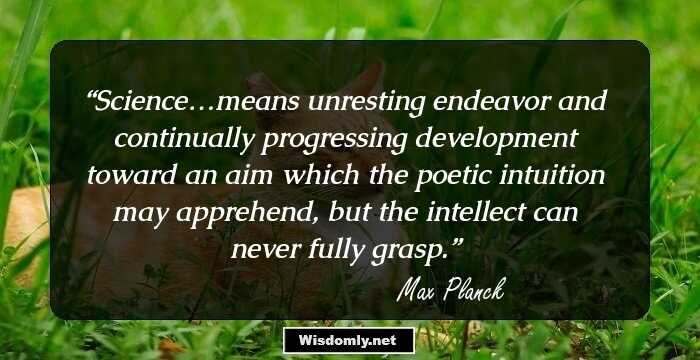
Science…means unresting endeavor and continually progressing development toward an aim which the poetic intuition may apprehend, but the intellect can never fully grasp.

We have no right to assume that any physical laws exist, or if they have existed up to now, that they will continue to exist in a similar manner in the future.
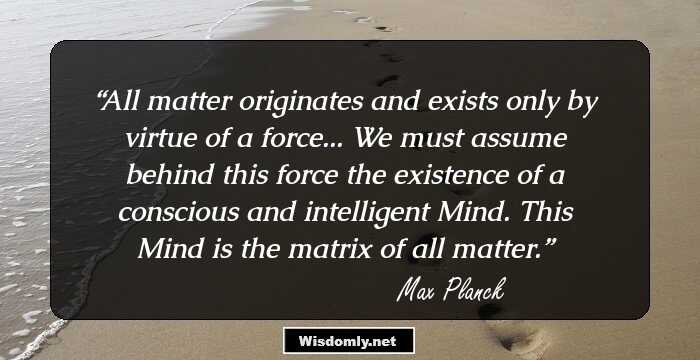
All matter originates and exists only by virtue of a force... We must assume behind this force the existence of a conscious and intelligent Mind. This Mind is the matrix of all matter.
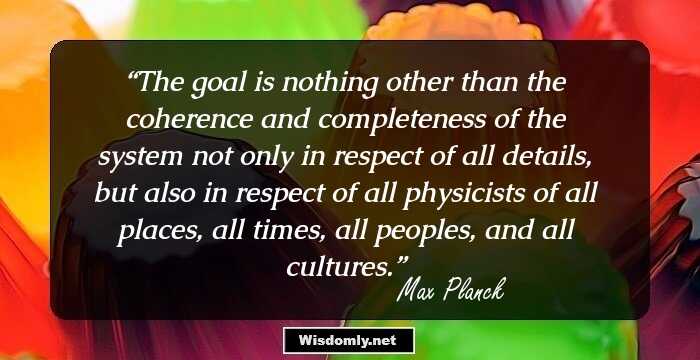
The goal is nothing other than the coherence and completeness of the system not only in respect of all details, but also in respect of all physicists of all places, all times, all peoples, and all cultures.
![Religion and natural science are fighting a joint battle in an incessant, never relaxing crusade against skepticism and against dogmatism, against unbelief and superstition... [and therefore] 'On to God!](https://www.wisdomly.net/images/quotes/max-planck-36676.jpg)
Religion and natural science are fighting a joint battle in an incessant, never relaxing crusade against skepticism and against dogmatism, against unbelief and superstition... [and therefore] 'On to God!
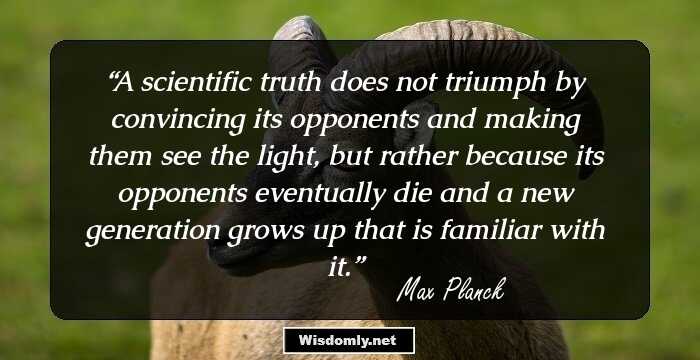
A scientific truth does not triumph by convincing its opponents and making them see the light, but rather because its opponents eventually die and a new generation grows up that is familiar with it.
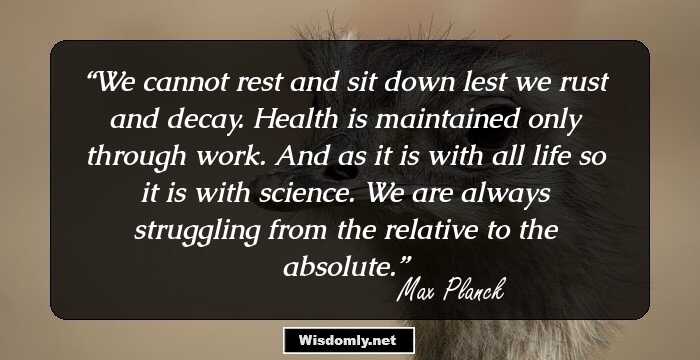
We cannot rest and sit down lest we rust and decay. Health is maintained only through work. And as it is with all life so it is with science. We are always struggling from the relative to the absolute.
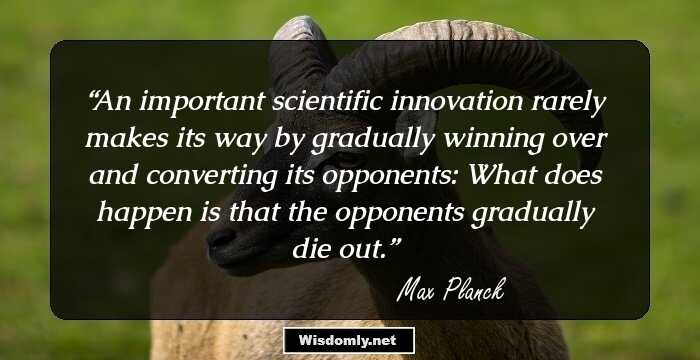
An important scientific innovation rarely makes its way by gradually winning over and converting its opponents: What does happen is that the opponents gradually die out.

Whence come I and whither go I? That is the great unfathomable question, the same for every one of us. Science has no answer to it.

We have no right to assume that any physical laws exist, or if they have existed up until now, that they will continue to exist in a similar manner in the future.

No burden is so heavy for a man to bear as a succession of happy days.
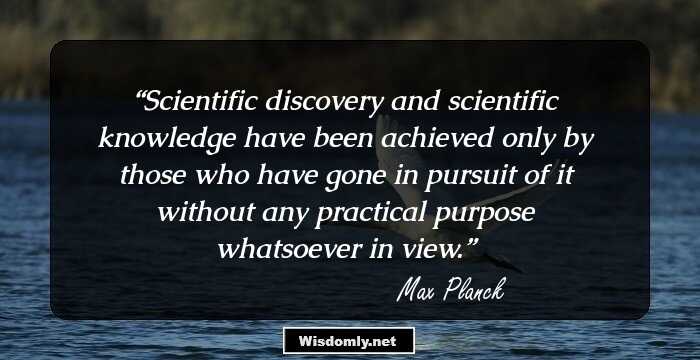
Scientific discovery and scientific knowledge have been achieved only by those who have gone in pursuit of it without any practical purpose whatsoever in view.

Ego is the immediate dictate of human consciousness.
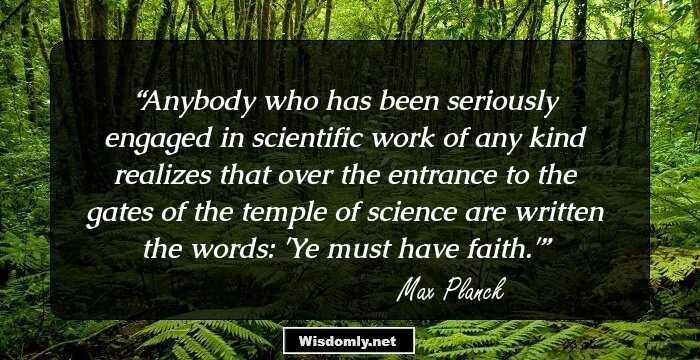
Anybody who has been seriously engaged in scientific work of any kind realizes that over the entrance to the gates of the temple of science are written the words: 'Ye must have faith.'










